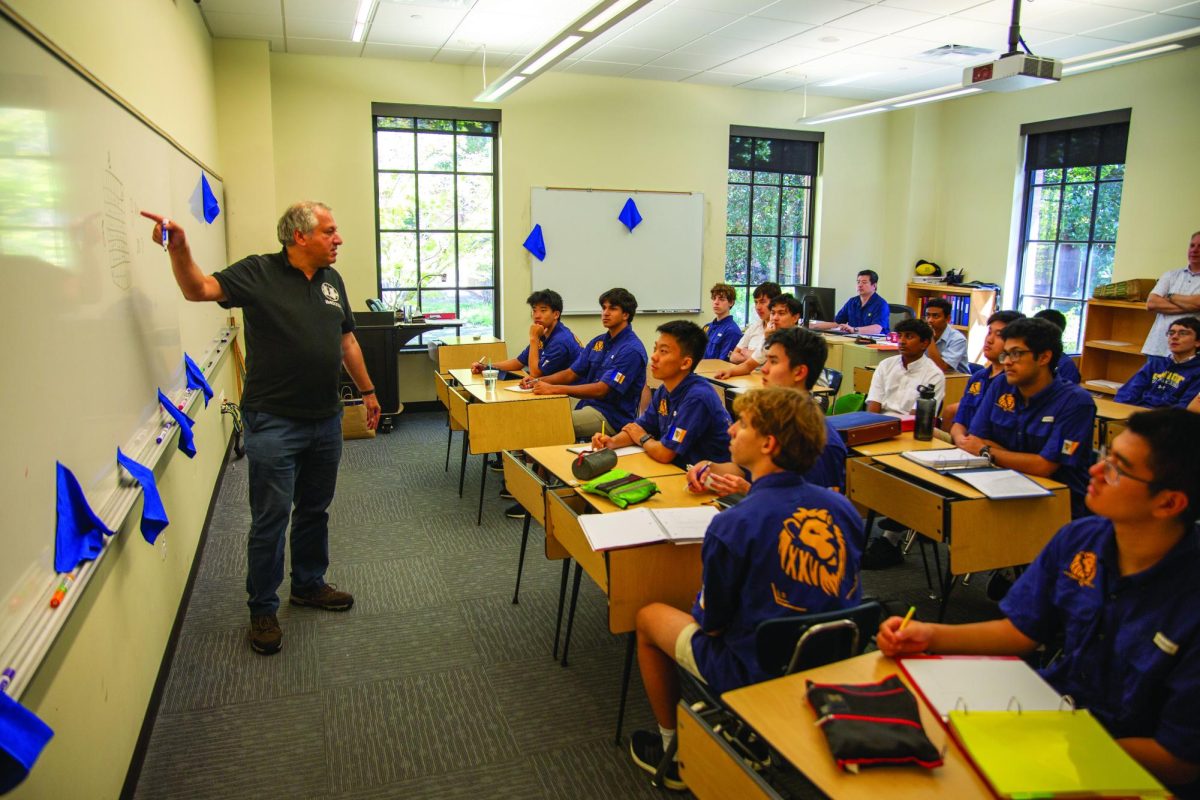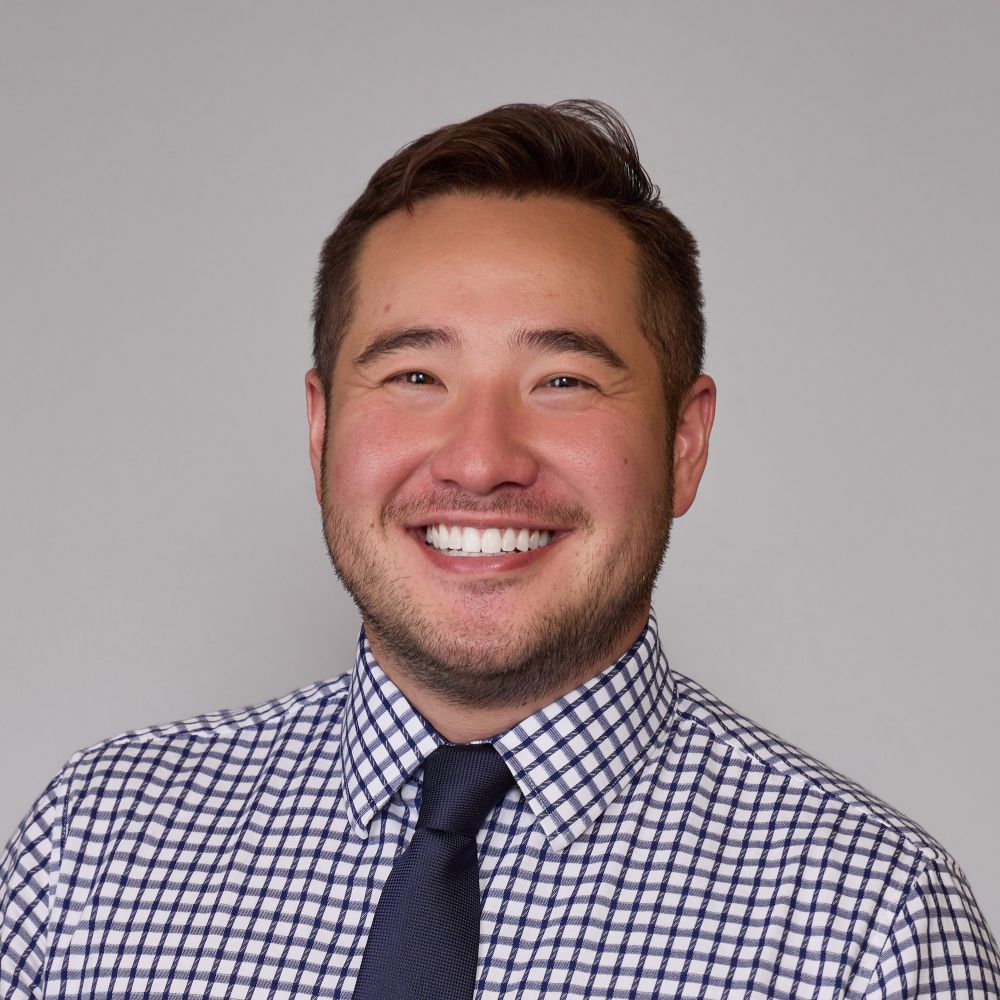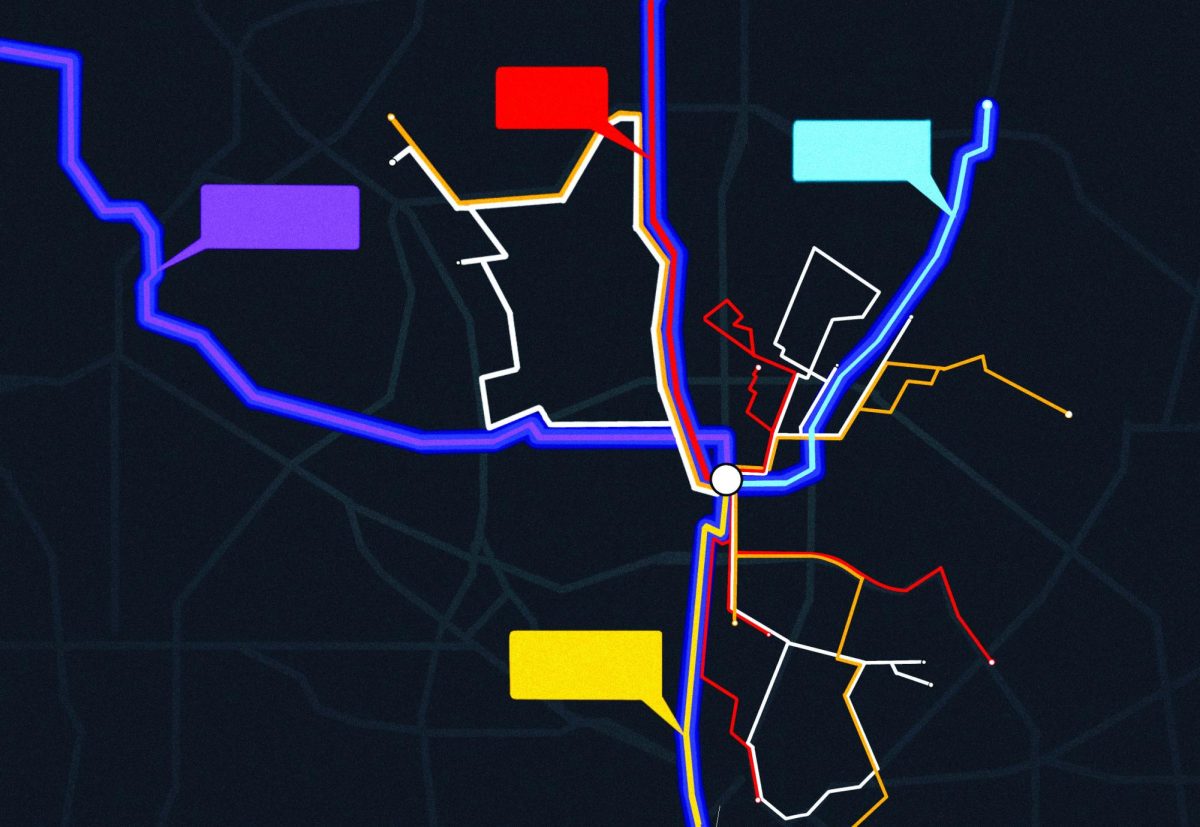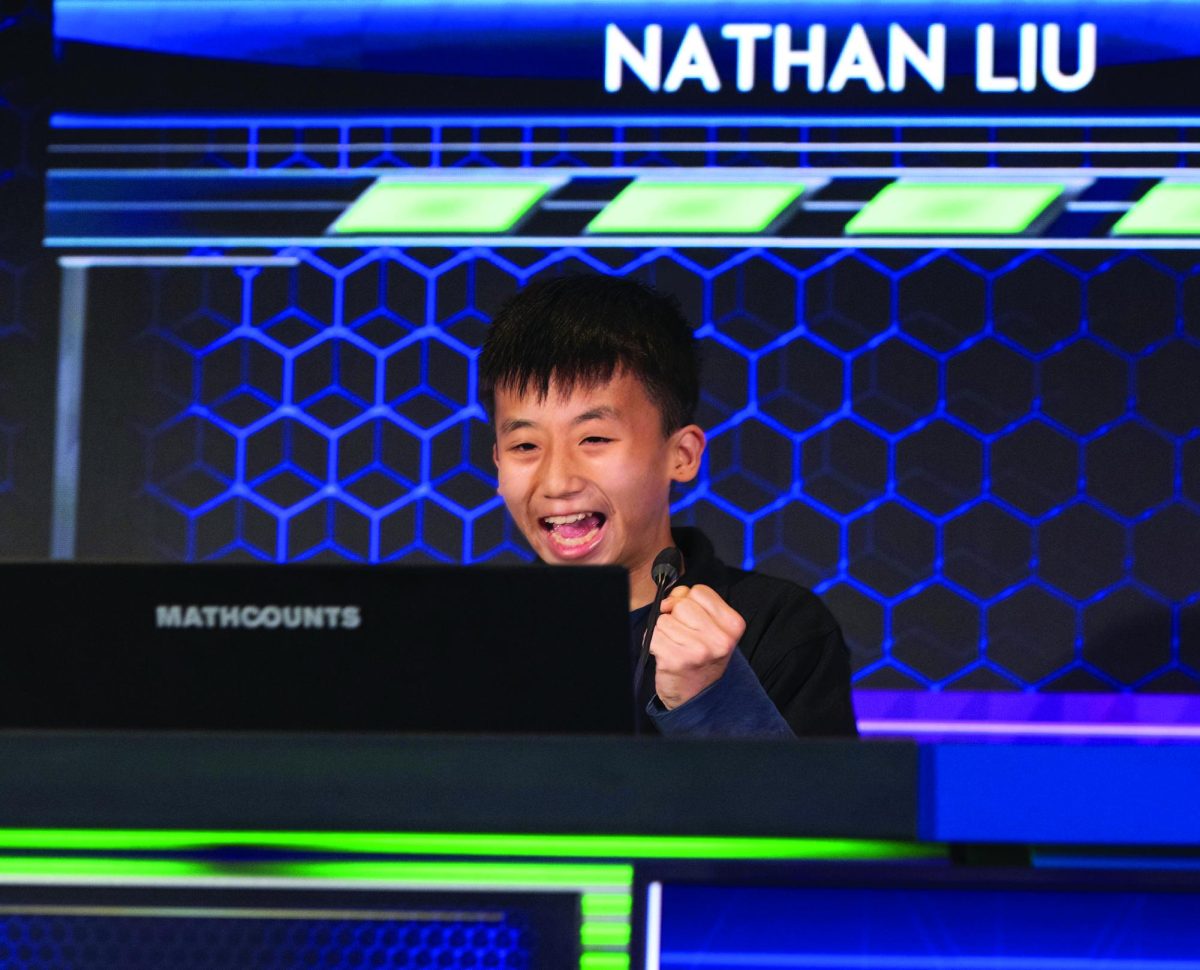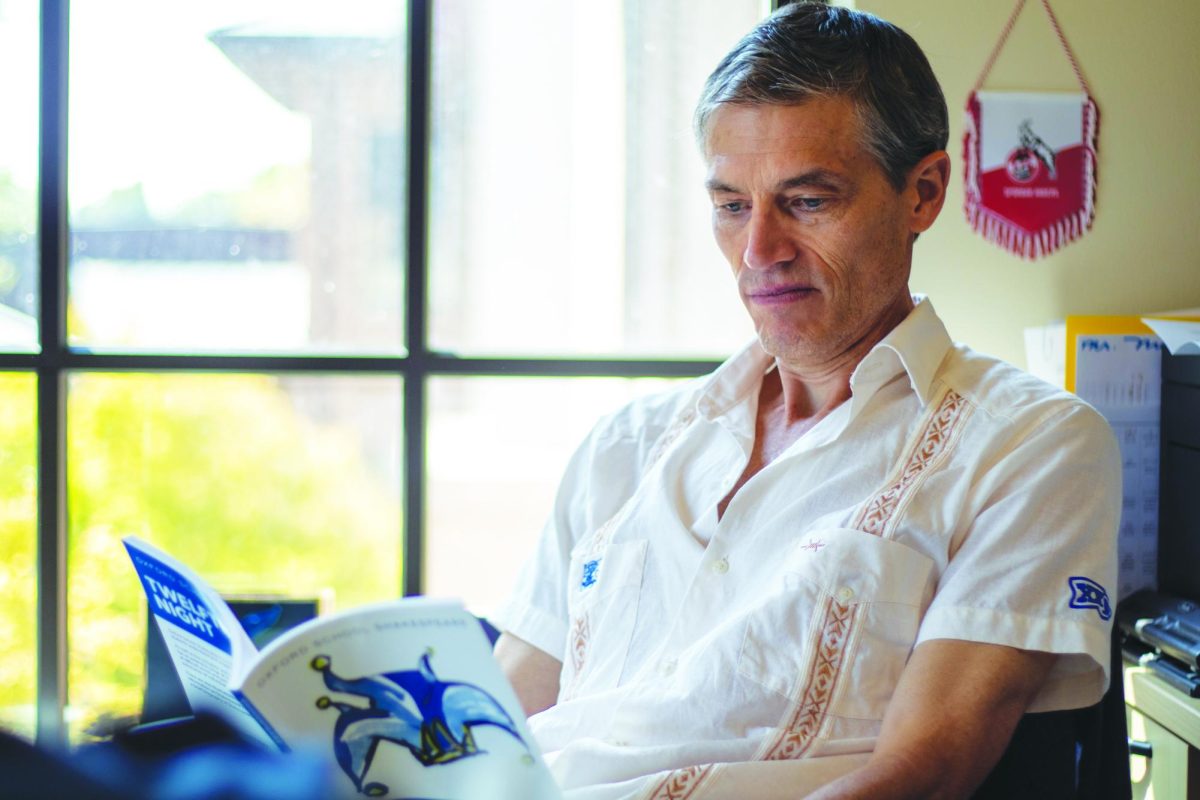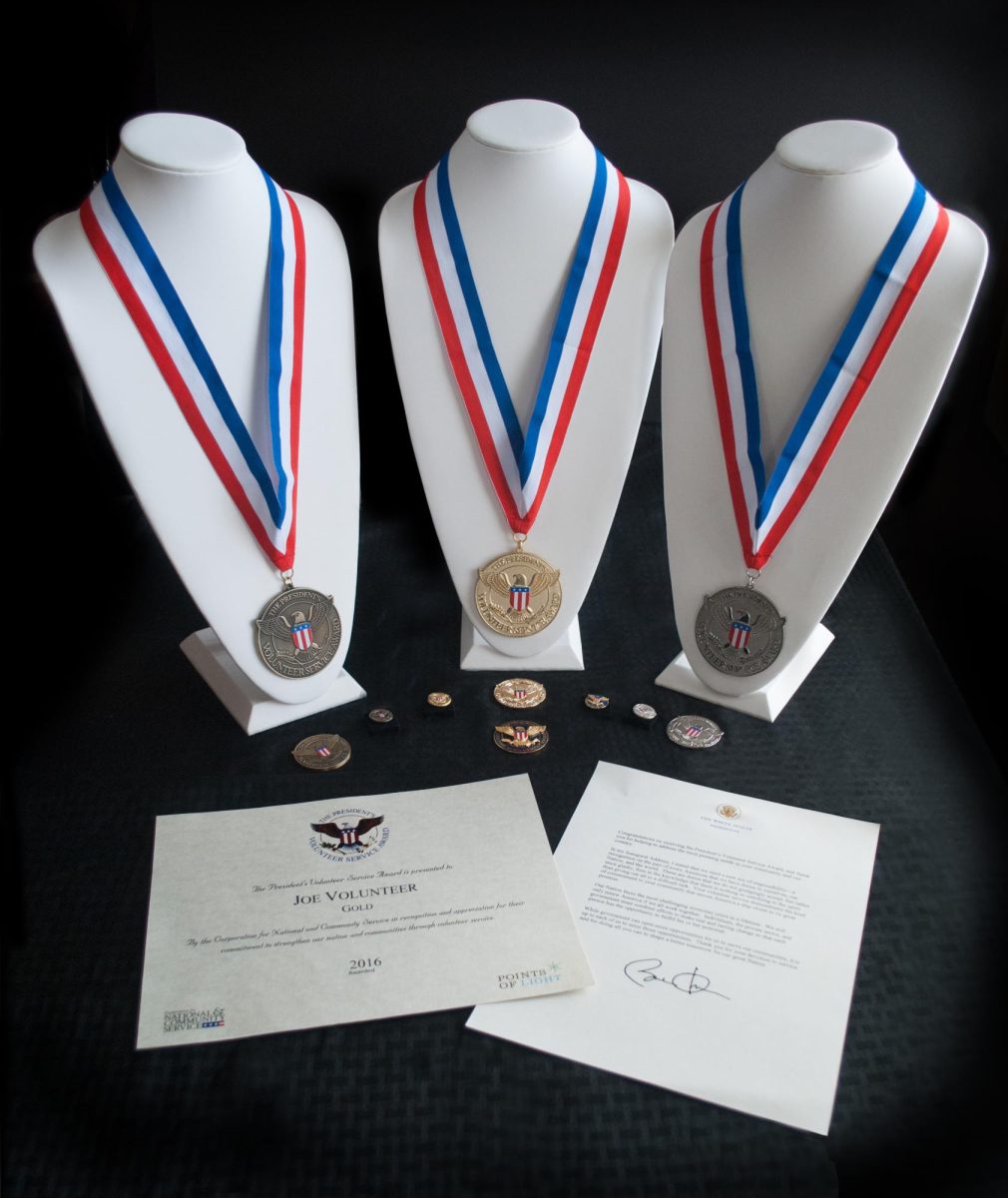Red hats, blue hats, and a perfectly random voting system.
Tiling a chessboard with tetrominoes of all shapes and sizes.
Counting infinity.
To any ordinary student, every concept is deceptively tricky.
Questions that make them sigh and turn the page.
And Robert E. Dennard Visiting Scholar professor Imre Leader can’t help but be fascinated by them.
Growing up in Britain, Leader attended the all-boys St. Paul’s School in London. Though a very enjoyable experience, cold and often miserable weather meant there were never too many outdoors activities available, so Leader turned to a boyhood passion.
“I always liked maths, as far as I can remember,” Leader said. “In Britain, the way (competitive mathematics) works is that there are these maths competitions which most people don’t even know about, but if you’re keen on math you get into them the last two or three years of high school.”
When Leader was participating in competitive mathematics in the 1970s, there were no math camps or summer programmes for students like him—students scouring for a challenge. There were so few opportunities for working together with other students, in fact, that when Leader participated in the International Mathematics Olympiad (IMO) in 1981, he met his teammates for the first time at Heathrow Airport.
“These were names that I’d seen in lists, that I’d competed with, but only in terms of scores on published lists,” Leader said. “My absolute best friends in the world are the people I met on that day.”
Leader won a silver medal at the IMO that year, marking him as one of the top 50 high school mathematicians in the world. That same year, he matriculated at Trinity College, a transition he found exciting.
“In school, you have friends who like math and great teachers, but being around a nucleus of other kids who (excel) is what’s really fun,” Leader said. “Kids who come up to Cambridge to do math have all been the top math person in their school, maybe the top person in the last five years, even 20 years. Then they meet people who are as good as or better than they are.”
For the next eight years, Leader worked extensively in mathematics research, earning his Ph.D. in 1989 for work on combinatorics. He took interest in everything, unexpectedly stumbling across a magazine article on Othello, a board game reminiscent of checkers.
“When I was about 17 or 18, a friend of mine found an article about how to play (Othello) well,” Leader said. “And then we started playing from there. It’s conceptually beautifully simple, but what’s weird about it is that the basic idea is unobvious. In Othello, the official aim is to have more pieces at the end, but the main idea of play turns out to be something that’s so counterintuitive.”
As of 2024, Leader is a 16-time British Othello champion, a 6-time European Grand Prix Championship winner, and in 1983 he was placed second in the world individual championship.
Leader’s main focus has always been on his research, [elaborate] Yet he finds a welcome mood lifter and relaxation in teaching.
“It’s really fun to communicate (ideas) and talk to people, and it keeps you interested in things,” Leader said. “For some postgraduates, teaching is nice because it’s a fixed point in the week and they feel they’re doing something. Often, if they’re just doing their research, for maybe weeks or even months, you get nothing. But when teaching a class, you feel like you accomplished something.”
Although the jump from high school-level extracurriculars to college-level research can seem daunting, Leader believes that it’s a good challenge.
“I think the main thing for high school students is that if they like the stuff, it almost doesn’t matter what they do; it’s the number of hours that matter,” Leader said. “The number of hours you spend, say, in math, is just good for your math brain. It makes you more mature, and it almost doesn’t matter what you study. So just spend time (doing what you like).”


